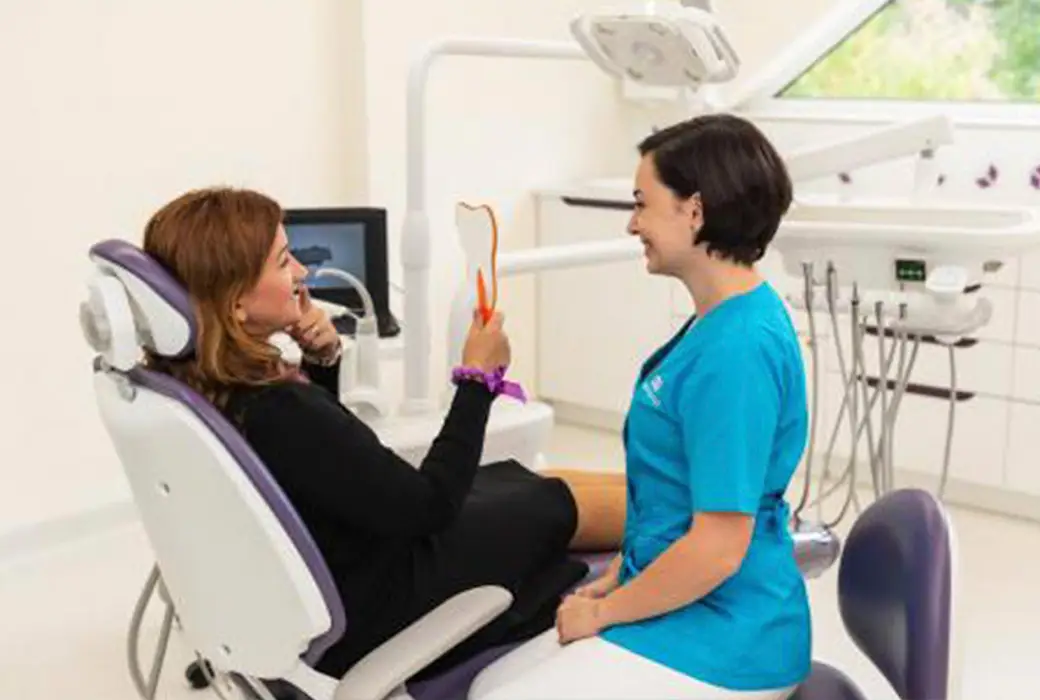
Dental abscess
Reasons to see your dentist urgently
A dental abscess is the local appearance of a pocket of pus, either inside the tooth, in the gums or in the bone supporting the teeth on the dental arch. The main cause of dental abscess is bacterial infection, which usually originates from poor daily oral hygiene.
As we know, the oral cavity is home to thousands of bacteria that help break down food debris and regulate the pH. Without proper daily dental hygiene, plaque and tartar build up on the teeth. In the long term, tartar can lead to various dental and soft tissue diseases.
What to do to avoid dental abscess
- Strictly follow your daily oral hygiene ritual at home;
- Avoid or limit consumption of acidic or high-sugar foods and drinks;
- Schedule regular check-ups twice a year with your dentist to get a complete dental status and check for any dental conditions that are symptom-free for now;
- Take care of your general health. A weakened immune system is a breeding ground for other conditions.
Dental abscess symptoms
A first symptom of dental abscess is severe and continuous pain with progressive progression from the first hours after the abscess has appeared. In many cases, the infection can spread to the ears, jaws or even neighbouring teeth.
It is therefore very important to consult your dentist urgently and avoid self-medication.
Other symptoms of dental abscess include:
- toothache or headache;
- inflammation of the soft tissues and face;
- red gums;
- unpleasant taste in the oral cavity and halitosis;
- fever (sometimes);
- local tooth sensitivity;
- the tooth or teeth in the area where the abscess has developed become slightly loose.
In severe cases there may also be muscle spasms in the jaws.
Types of dental abscess
- Periapical abscess (localized at the root tip of the tooth, affects the dental pulp);
- Periodontal abscess (periodontal pocket);
- Gingival abscess (localized to the gums and soft tissues).
Causes of dental abscess
Although the outer shell of the tooth is hard, the tooth enamel, the inside of the tooth is made up of soft tissues, blood vessels and dental pulp. Without proper care, deep decay can develop on the surface of the tooth, destroying the enamel and spreading to the inside of the tooth and causing infection of the dental pulp.
The most common causes of infection are:
- Deep caries;
- Periodontal disease;
- Tooth loss;
- Dental trauma.
Treatment of a dental abscess
The first step for effective treatment is the patient's quick reaction! Dental abscesses do not go away by themselves and left untreated they can develop negatively. The standard treatment for a dental abscess is the removal of the infection by a procedure called drainage, which involves removing pus from the pocket of infection.
Depending on the location of the abscess and the severity of the infection, possible treatments may include:
- Incision and drainage of pus;
- Microscopic root canal filling;
- Extraction of the affected tooth (if it has been severely impacted and can no longer be saved).
There are, however, also cases where there are no symptoms. This means that the infection has found a place for drainage. In this situation, the dentist can detect the dental abscess during the routine dental check-up and it can be seen on the digital X-ray.
The treatment of the abscess is usually carried out by the endodontist, who has the experience to successfully treat the case.
Post-treatment, the coordinating doctor may recommend medication to ensure that the patient's overall health is protected.
The patient is also advised to temporarily reduce pain or discomfort as follows:
- Avoid hot foods and drinks;
- Consume cold and soft foods and drinks;
- Avoid chewing food on the affected area;
- Use a soft-bristled toothbrush and avoid flossing the affected area.
These actions are not a long-term solution and a visit to your dentist is extremely important!


